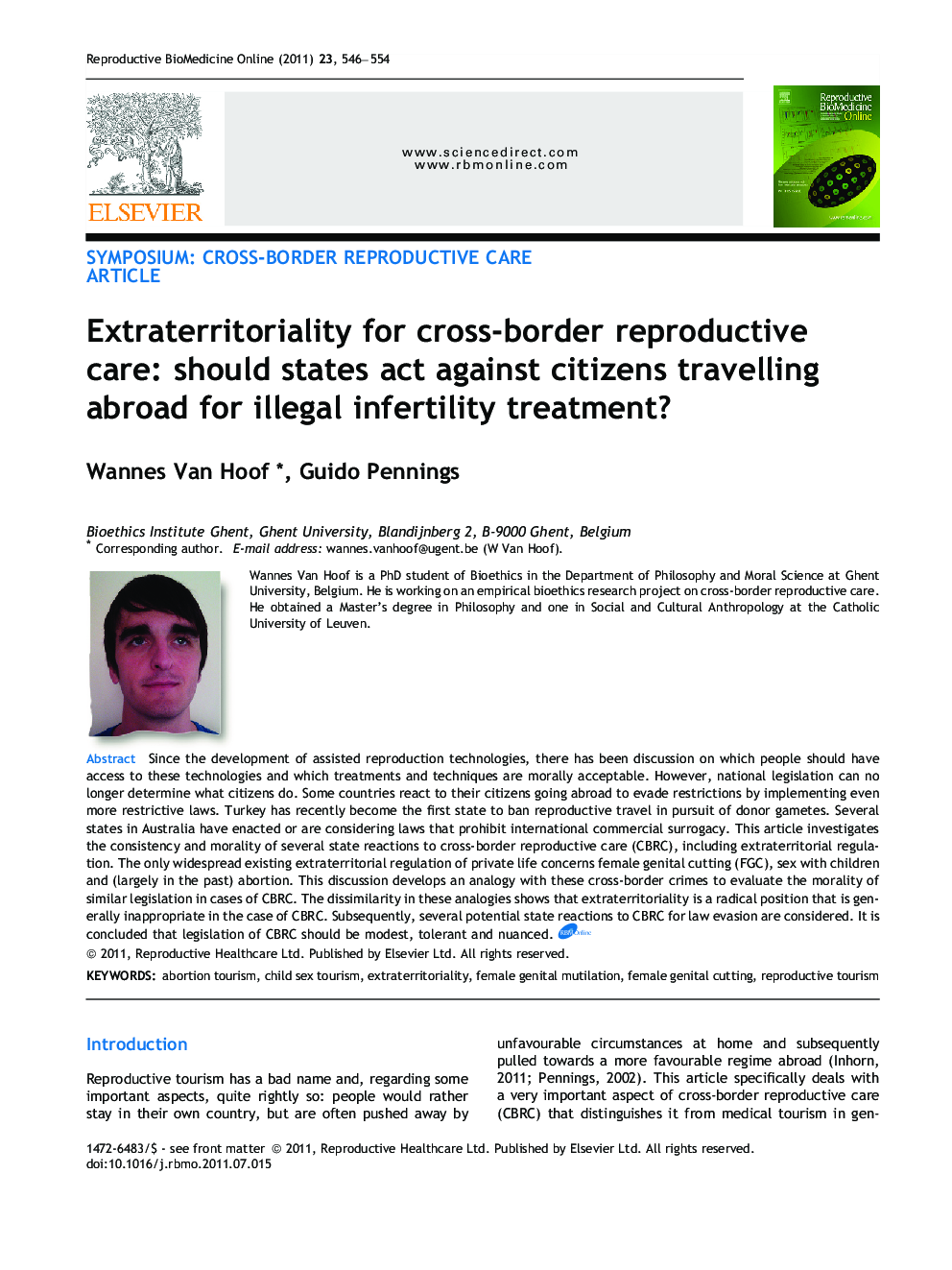| Article ID | Journal | Published Year | Pages | File Type |
|---|---|---|---|---|
| 3971329 | Reproductive BioMedicine Online | 2011 | 9 Pages |
Since the development of assisted reproduction technologies, there has been discussion on which people should have access to these technologies and which treatments and techniques are morally acceptable. However, national legislation can no longer determine what citizens do. Some countries react to their citizens going abroad to evade restrictions by implementing even more restrictive laws. Turkey has recently become the first state to ban reproductive travel in pursuit of donor gametes. Several states in Australia have enacted or are considering laws that prohibit international commercial surrogacy. This article investigates the consistency and morality of several state reactions to cross-border reproductive care (CBRC), including extraterritorial regulation. The only widespread existing extraterritorial regulation of private life concerns female genital cutting (FGC), sex with children and (largely in the past) abortion. This discussion develops an analogy with these cross-border crimes to evaluate the morality of similar legislation in cases of CBRC. The dissimilarity in these analogies shows that extraterritoriality is a radical position that is generally inappropriate in the case of CBRC. Subsequently, several potential state reactions to CBRC for law evasion are considered. It is concluded that legislation of CBRC should be modest, tolerant and nuanced.Since the dawn of assisted reproduction, there has been discussion as to which people should have access to these technologies and which treatments and techniques are morally acceptable. However, national legislation can no longer determine what citizens do. Some countries react to their citizens going abroad to evade restrictions by implementing even more restrictive laws. Turkey has recently become the first state to ban reproductive travel in pursuit of donor gametes. Several states in Australia have enacted or are considering laws that prohibit international commercial surrogacy. In this article, we investigate the consistency and morality of several state reactions to cross-border reproductive care (CBRC), including extraterritorial regulation. The only widespread existing extraterritorial regulation of private life concerns female genital cutting (FGC), sex with children and (largely in the past) abortion. We develop an analogy with these cross-border crimes to evaluate the morality of similar legislation in cases of CBRC. The dissimilarity in these analogies shows that extraterritoriality is a radical position that is generally inappropriate in the case of CBRC. Subsequently, we consider several potential state reactions to CBRC for law evasion. It is concluded that legislation of CBRC should be modest, tolerant and nuanced.
